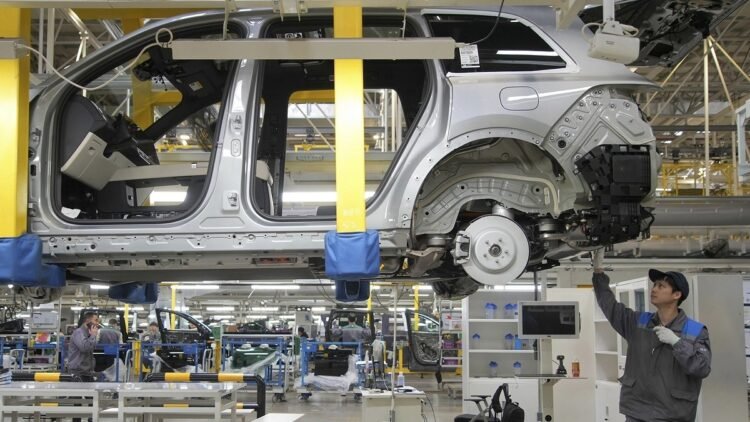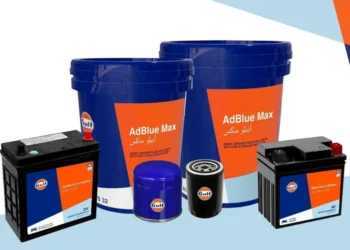The automobile industry is always finding new advances, and the changes are not only with regards to technology but also performance. The reason for the production of strong and efficient vehicle parts is that of automotive casting. Casting solutions, which manufacturing relies on as sources of innovation for the provision of light yet strong materials and the satisfaction of safety standards and sustainability, has led to the achievement of manufacturers about enhancement in durability in products, simplification in production, and optimum performance. In this article, we discuss the car casting transformation role in the auto industry today and go in detail on the importance of advantages between producers and consumers.
Relevance of Automotive Casting to Vehicle Production
Casting is one of the most critical techniques in the automobile industry because it calls for very high precision, strength, and efficiency. For the parts being complex yet reliable in nature, casting is a very appropriate method. Automotive casting can be used to manufacture core parts of the vehicle; these are the engine blocks, housing of the transmission, and chassis components. Casting has advanced in utilising a modern method of die-casting that entails producing higher resistance and mechanical properties. Good heat and corrosion-resistant automotive parts can thus be provided by casting manufacturers through careful selection of materials such as aluminium, magnesium, and zinc alloys, significantly adding to the longevity and safety of vehicles.
Why Automotive Casting is a Game Changer for the Auto Industry?
Casting technology has taken a significant lead in terms of efficiency, accuracy, and environmental-friendliness. The most superior automotive casting companies ensure a high quality level that every casted component meets strict quality checks, resulting in the manufacture of safe, resistant, and cost-effective parts. Now, let’s have an in-depth overview of how the car parts casting companies are setting new standards for the automobile industry.
Benefits of Automotive Casting for Different Types of Car Parts
- High Durability and Customization
Automotive Casting offers more durability and customization options to vehicle parts. The parts passed intensive quality checks to meet the specified designs and performance parameters, with increased strength and stability in the structure of the body. Engine blocks, brake parts, even sunroofs are possible with highly resistant castings to wear and tear.
- Corrosion and Heat Resistance
Good resistance to corrosion and heat is guaranteed with the materials used in automotive casting. The resistance of parts to excessive temperature and unfavourable environmental conditions makes it very important. Aluminium or zinc alloys work well with extreme temperature conditions and pressure, which is quite beneficial for engine and exhaust system parts.
- Low Cost-Production
Automotive casting is an economical process that has reduced the cost of production greatly without reducing its quality. Advanced techniques in casting have enabled producers to benefit from precise designs with lesser costs-to-benefit, both for the producers and consumers. For example, lightweight aluminium components, in relation to stainless steel, reduce costs because they are lighter, hence allowing manufacturers to optimise expenses incurred in producing the component.
Safety and Sustainability with Automotive Casting
Sustainability and safety are increasingly important in the modern car industry. Automotive casting is a part of both sustainability and safety because material with high dimensional stability and durability will secure the assurance that automotive castings would comply with the very strict standards set for vehicle safety. Besides, most of the casting facilities in the industry have started implementing green processes through recycling materials as much as possible to reduce waste. This sustainable approach aligns with the industry’s goal of minimising its environmental footprint while making sure the reliability and safety of a product.
Electronic Systems, Sensors Of Modern Vehicles, And Their Shielding
When external elements damage the components of the modern vehicle, automotive casting manufacturers engineer tight packaging to protect the vital elements from outside influences. The proper precision casting guarantees that there will be functionality in the vehicle navigation systems, infotainment systems, as well as electric components in electric vehicles. Hence, the need for quality electric vehicle casting that protects electronic systems becomes very essential when electric vehicles start to gain more recognition.
Ensuring Excellence in Automotive Casting
- Precision in Engineering Design
Quality car casting depends primarily on proper engineering design to allow each cast component to possess the needed strength, flexibility, and shape. Precise accuracy in the casting process ensures that there is less need for additional machining, thus saving time and resources.
- Mechanical Good Properties
Automotive casting manufacturers ensure that the raw materials have good mechanical properties in relation to tensile strength, flexibility, and malleability. The types of such materials include everything from retractor belts, camshafts, and brake components to other constituents contributing to the automobile’s overall performance.
- Minimum Energy Waste
Many casting processes have been optimised today to save energy and, therefore, help achieve the goals of sustainability in the automotive industry. Low melting point materials, such as aluminium alloys, reduce the energy associated with the casting process and serve as more energy-efficient tools.
Automotive Casting and Industry Innovation
Innovation, fuel efficiency, and a reduction in emissions have kept the automotive industry constantly on the move. Automotive casting manufacturers meet this demand through the innovative use of casting solutions to make parts in cars lightweight, consume less fuel, and require less maintenance. Engine blocks and steering columns are typically produced as magnesium alloys because they can absorb shock and thus serve the changing demands of the industry.
Automotive Casting Flexibility and Efficient Production
Flexibility in automotive casting provides manufacturers with flexibility to produce components of different sizes and shapes, which can be specifically designed according to actual requirements. Not an exception for high volume since high volume automotive casting enables manufacturers to make castings efficiently and in a short time. With cycle-time optimization and the latest casting technology, manufacturers avoid design complexities from being badly carried out, thus making them enable auto companies to deliver accordingly.
Excellent Usability and Maintenance
Automotive casting components are highly friendly to the user and require minimum maintenance. This suitability makes it suitable for the automobile industry, where relying and durability is of much importance. Automotive castings are quite useful with high thermal tolerances and robust designs, whereby in various road conditions, a minimal repair or replacement need is acquired.
The Role of Automotive Casting in the Automobile Industry End
Automotive casting basically is unparalleled in the world of vehicle manufacturing: unmatched precision, efficiency, and durability. Manufacturers will surely continue to innovate as they meet the challenges required for the automotive sector. Time will tell that Automotive casting is one of the cornerstones of modern vehicle production.
The AKP Ferrocast group is leader in producing agricultural casting products and the best quality components supplied to the world manufacturers. Conforming to quality, precision, and commitment, it is well-positioned to become part of that significant shift toward efficient, sustainable, and high-performance components for the auto industry.






















